The Namaqualand coast is characterised by windswept white beaches and lonely tracks. It’s the type of place where you can still camp simply by the shore and revel in the serenity.
The whitewashed fishing villages along the West Coast are undeniably charming. But if you’re in search of something wilder and freer, keep on driving towards Namaqualand. Along this coastline you’ll find a multitude of beautiful little bays, but very little development. This land is mostly untouched, so if you want to get a taste of rustic seaside camping, this is the place to come.
Driving the Namaqualand coast
A track of some 50km runs the length of the coastal section of Namaqua National Park, revealing sheltered bays and secluded campsites. It’s not a challenging 4×4 trail, but you do need a high-clearance off-road vehicle. As shown on the T4A map, there are sandy stretches and it’s recommended you deflate your tires. During flower season, this route is most commonly driven from north to south, so you get the full effect of the flowers turning their faces to the sun. But you can just as easily drive it in the opposite direction and continue on to Hondeklipbaai.
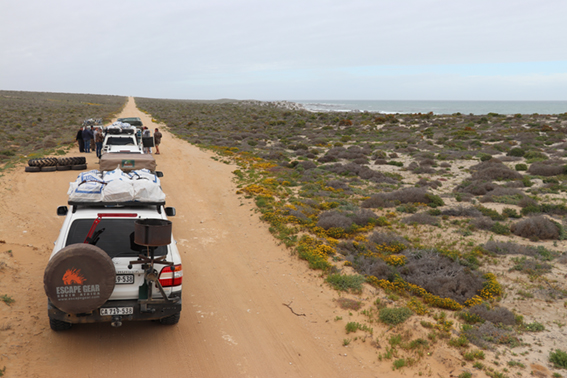
Also read: On the trail to Hondeklipbaai
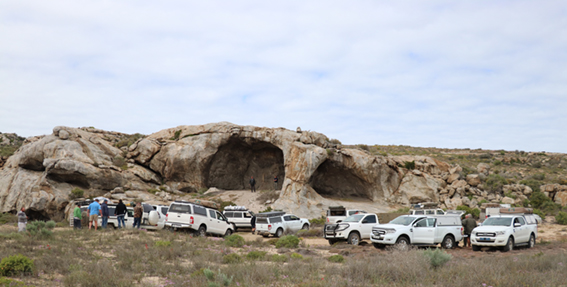
The park stretches from the mouth of the Groen River in the south to the Spoeg River in the north. Here it is worth visiting Spoeg River Caves, a site of some archeological significance. The sheep bones that researchers found in the caves have been dated to 2,000 years ago. This makes it the earliest evidence of domesticated sheep in South Africa. On their journey south, Khoikhoi nomads would have camped here with their flocks. Visitors camping in the park have much the same experience as these early travellers. At night, the sound of the waves lull them to sleep, by day the breeze off the sea takes the bite out of the sun.
Where to camp
The nine campsites dotted along the Namaqualand coast are aimed at self-sufficient travellers. Although they have a windbreak and firepit (and some an enviro loo), you have to bring your own food, wood and water. Kwass se Baai has a protected bay and a beautiful stretch of white sandy beach. While the campsites average just a handful of stands (Groenrivier excluded), you’ll often find yourself camping alone anyway. Book Skuinsklip or Skuinsbaai Noord (2 sites each) for complete privacy.
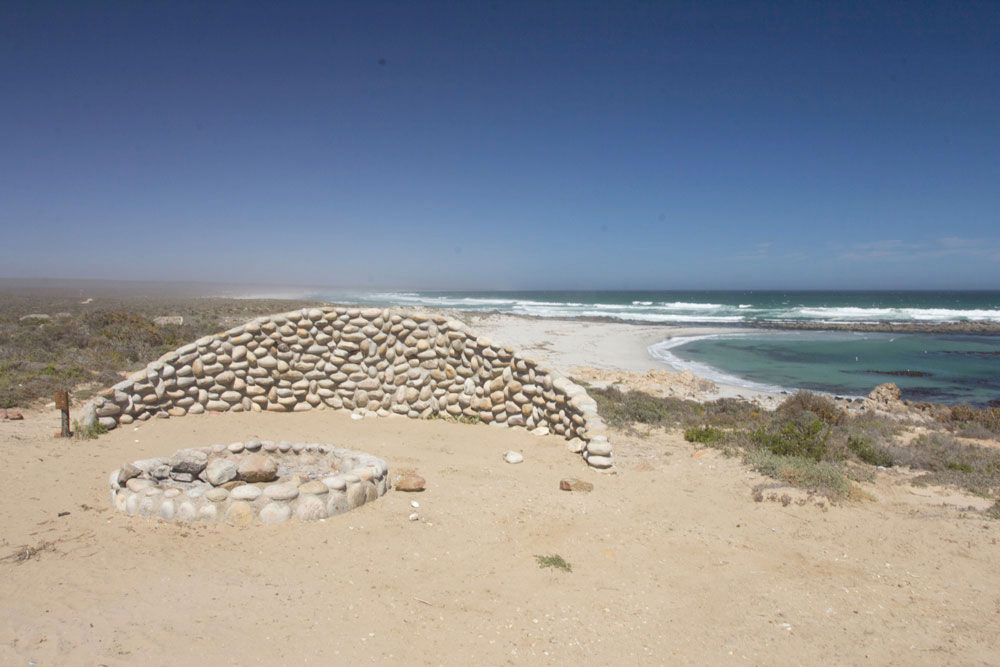
Kwass se Baai gets the T4A thumb’s up: “Situated on a stunning little beach, which you have to yourself. Pure paradise!”
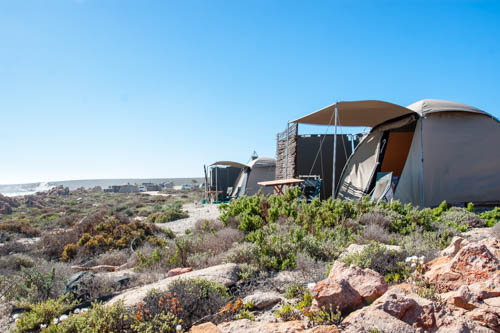
What to do
If you’re staying a couple of nights, bring your mountain bike or, even better, a fat bike to explore at a leisurely pace. Also not to be missed is the Heaviside Hiking Trail, which follows the shoreline for 6.5km from Abjoel viewing deck. Named for the Heaviside dolphin, which frequents these waters, the trail is a heady dose of sea and sand. You’ll walk along stretches of beach unmarked by footprints and at low tide you can explore the interesting rock pools. Black oystercatchers are often seen, a sign of the park’s successful protection.
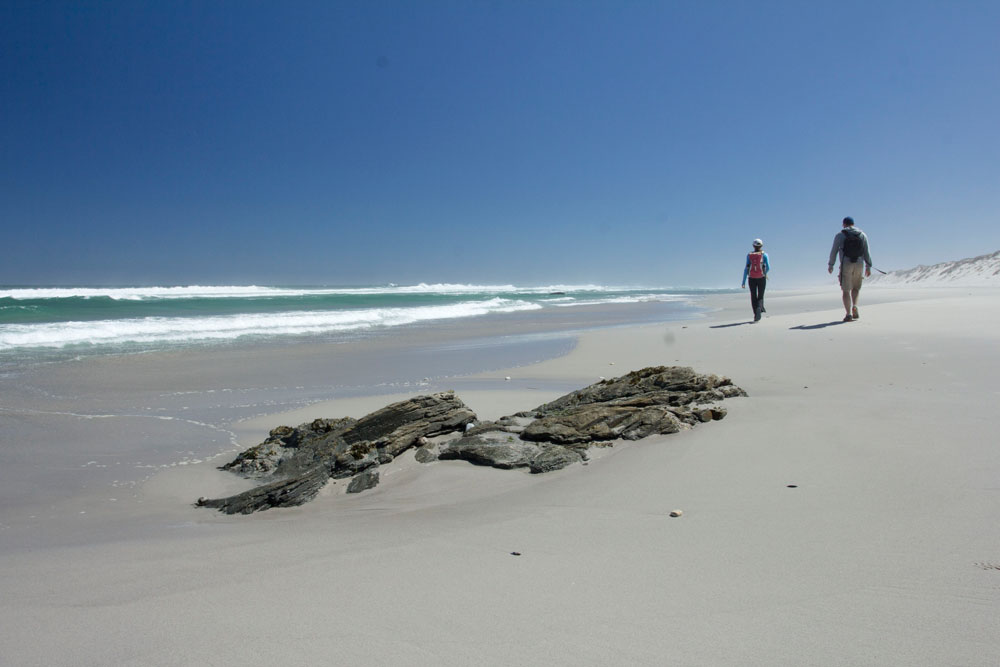
Discover secluded campsites, remote game reserves and roads far from the big city with our navigation tools, from GPS and paper maps to road atlas and guide books.
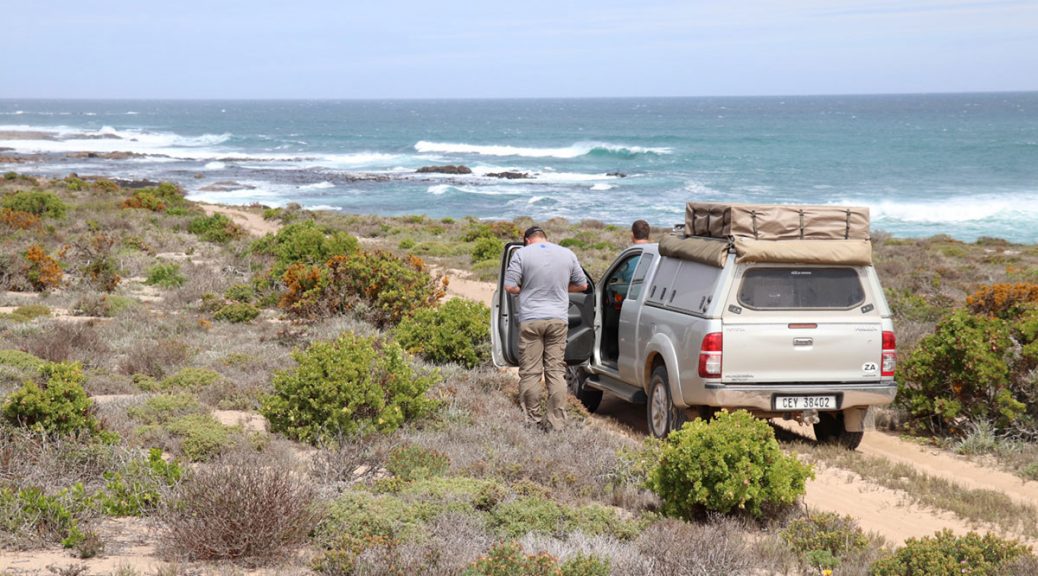

Just love that part of the Westcoast, also to the south of Groenrivier.